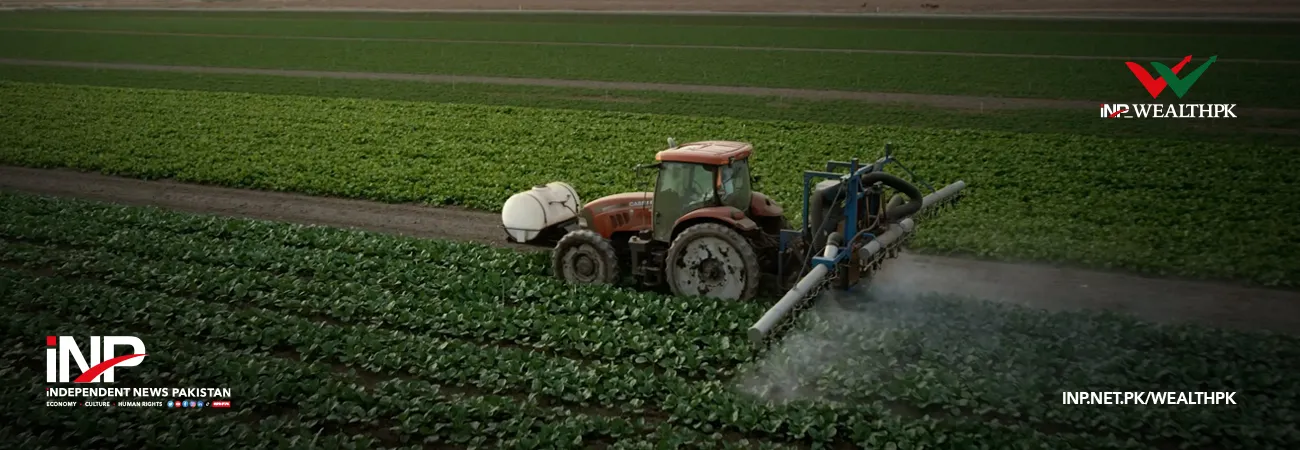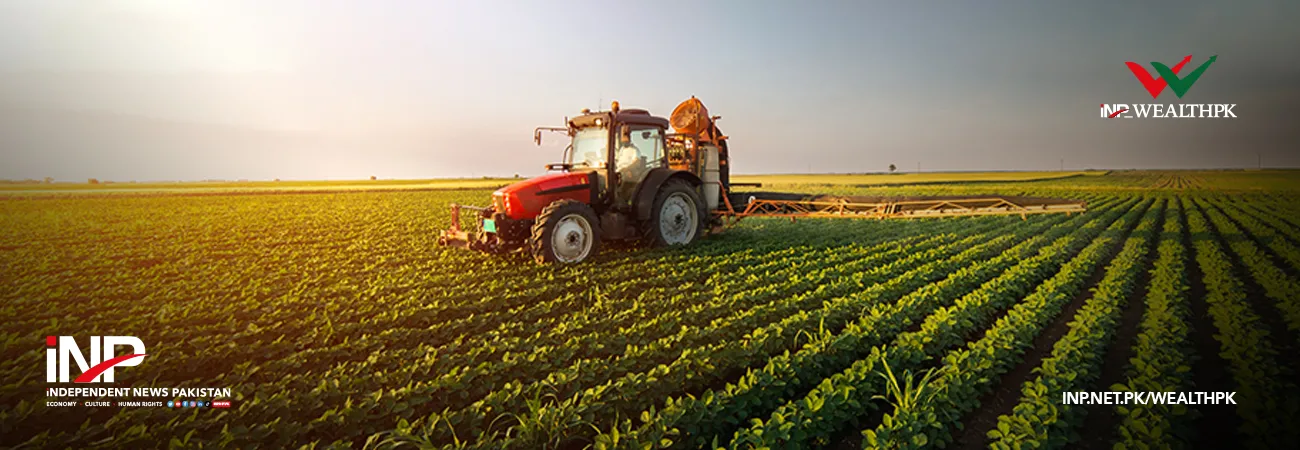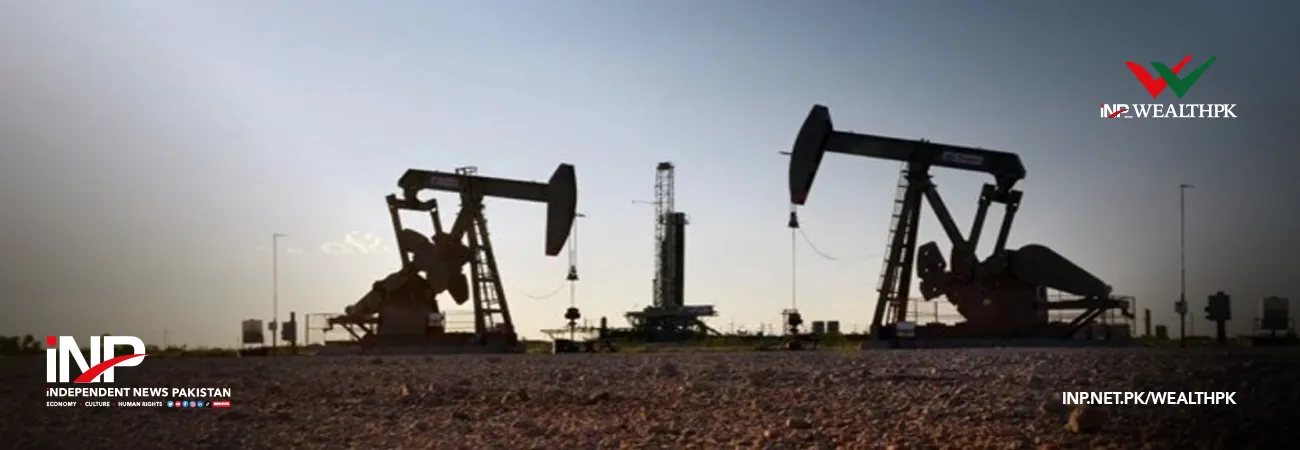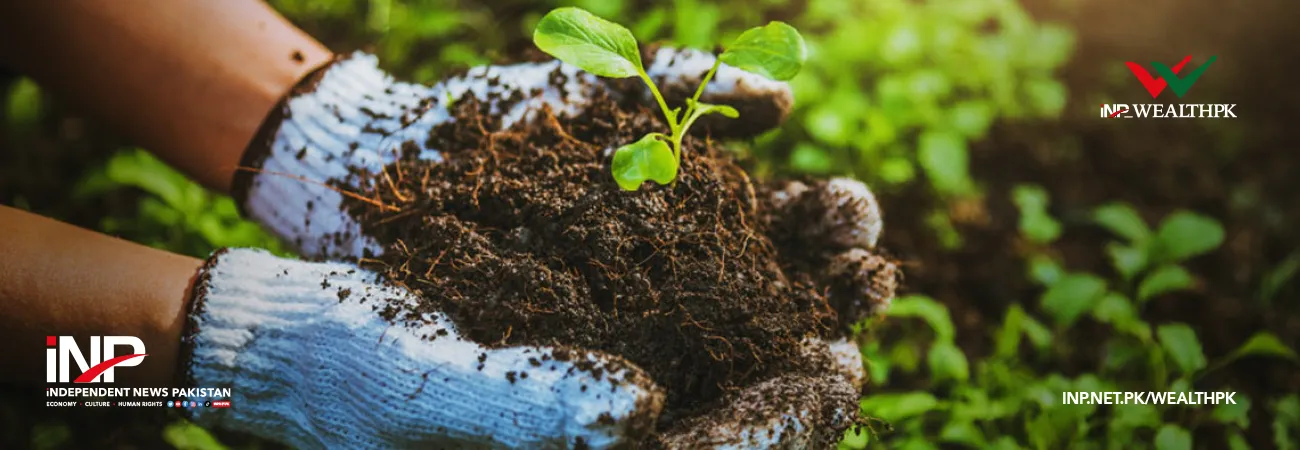آئی این پی ویلتھ پی کے
Muhammad Saleem
Agriculture is the backbone of Pakistan's economy, and efforts are required to transform this sector in light of emerging challenges and technological advancements.
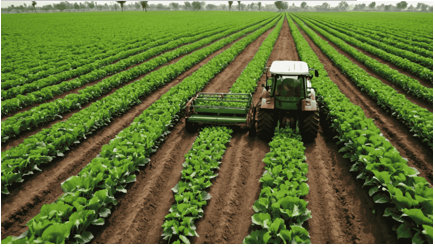
Talking to WealthPK, Dr. Ahmed, an economist, said Pakistan’s economy was strongly dependent on agriculture, and there was a need to embrace technological advancements to reap the long-term rewards. “The majority of our farmers still use the age-old technology which fails to give the desired production results. Without diversification, climate-resilient crops, and latest cultivation methods, we cannot make our agriculture sector sustainable, as water crisis and climate change take a toll on every crop,” he said. “From top to bottom, everyone knows that agriculture is a vital part of Pakistan’s economy, playing an essential role in the lives of all.
However, we must realize that the global economies are increasingly diversifying, and we must adapt to the change in order to remain sustainable. “We are heavily dependent on agriculture, but our efforts to address emerging challenges like water scarcity, climate change, and adoption of modern technology are very slow. I strongly recommend a focus on other sectors to ensure long-term sustainability and economic resilience. Any sort of calamity can severely damage our agriculture sector, so adopting sectors like engineering, information technology, pharmaceuticals will help us weather the storm,” Dr. Ahmed said.
He firmly believes that Pakistan needs a balanced economic model – one that brings agriculture, industry, and the services sector together under one roof. Efforts must be made to foster harmony among these sectors, as they can move mountains when pulled together. Urging the policymakers to take practical measures, he said efforts must be made to improve the environment for investment and business, along with implementing sustainable, business friendly policies. Through this approach, he said, long-term economic stability and growth could be ensured. Dr. Zahid, a teacher at the University of Agriculture Faisalabad, told WealthPK that agriculture would continue to be the most important part of Pakistan's economy despite all sorts of emerging challenges.
He said as a large number of people were directly or indirectly linked to the agriculture sector, it will remain the driving force in future. “It is essential to support the economy through higher agricultural production and livestock farming. However, this sector may stagnate without adopting modern technologies and latest farming methods. “I am not against diversification, as ample growth opportunities are available in different sectors like IT, tourism, education, and industry. All such sectors have a tremendous potential to create jobs and improve the overall economic stability. However, we must not ignore the agriculture sector, which is meeting the food our requirements.”
He urged the policymakers to invest more in agricultural research and modern techniques to prepare this sector to withstand natural disasters and boost crop production. Similarly, agriculture and other sectors need an affordable electricity and gas coupled with a conducive environment for local and foreign investment.
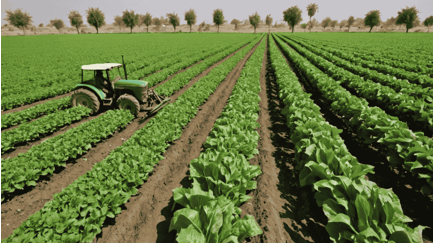
Dr. Zahid said there was a need to focus on climate-smart agriculture approaches to increase productivity by minimizing the negative impact on the environment. Shahid Malik, an industrialist, acknowledged that agriculture remained a foundation for Pakistan’s economy; however, it was a proven fact that without advancing industrial development, the country’s economy will have to struggle to reach its full potential.
He said the textile sector was the mainstay of Pakistan’s economy; however, this sector was struggling due to the high energy costs and uncertainty prevailing in the country. The textile sector cannot thrive without affordable energy and a developed agricultural sector. The country needs to enhance exports to earn foreign exchange, create jobs, and strengthen the financial position of farmers.
Credit: INP-WealthPk


